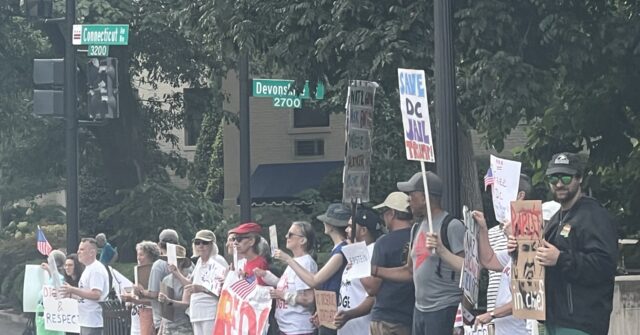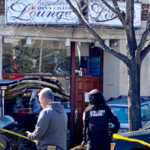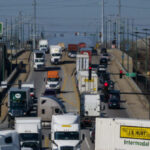“Washington, D.C. is where ideas go to die.”
That was my first impression of the nation’s capital, as a junior in college, when I juggled political internships (and girlfriends) in the impossible heat and humidity of our nation’s capital, looking for something to believe in. My father often reminds me of that line, which was my verdict on the whole experience, and perhaps also the beginning of a political awakening from left to right.
Not that it was a bad summer, on the whole. I found a tiny sublet in Georgetown that belonged to two black girls, one of whom was studying religion and dating a future NFL draft pick. She called me once, mortified, apologizing for having left a pornographic film on the VHS player, explaining that it had just been a lark. (I hadn’t even turned on the machine yet, but I did after that.) I cooked for myself — pasta, easy. I was proud.
There were cockroaches, and termites — everywhere. Not just in our place, but also in then-Secretary of State Madeleine Albright’s place across the way, too. The city sweated, and stank. One afternoon, I played softball on the National Mall with some other kids from Harvard. That night, I had an allergic reaction to something and could not breathe. I took a taxi to the nearby hospital: I suffered DC-induced asthma for the next decade.
There were some good parties, and classic debates. I remember sitting up late with a buddy from college in the living room of a girl we both knew, and whom he was pursuing avidly. He was conservative — one of the few in the Ivy League; I was still far-left, off the deep end. “Why shouldn’t states have their own policies? Why does the federal government have to do everything?” he asked me. I chewed on those questions for years.
In fact, D.C. gave me many reasons to doubt some of my radical convictions. My first internship was with an old organization on the progressive left that seemed to do very little except wait for the next thing to happen. That bored me, so I found my way to the Progressive Policy Institute, which sounded more left-wing than it was: it was the Clinton Democrats’ think tank, the free trade, free market, Southern center-left of the Party.
That was a little more interesting, though to get to work I had to walk past the Heritage Foundation, where my conservative classmate would spot me on the sidewalk. He never lost an opportunity to needle me about the fact that the supposedly greedy right-wingers at Heritage were paying their summer interns, while the do-gooders at the “Progressive” think tank required me to work for free. (I chewed on that for years, too.)
One thing that was universal, in almost every workplace in D.C., was the racial and social hierarchy. The person at reception was almost invariably female, or black, or both; the bosses in back were typically white. Interns advised each other to stay in the plush Northwest quadrant of the city, preferably west of 13th Street; Northeast and Southeast were considered poor, black and dangerous. Even Capitol Hill was absurdly dodgy.
The city is only slightly less segregated, thanks to the advent of a more diverse elite, and the slow creep of gentrification into rough neighborhoods. But crime soared in the Black Lives Matter era, as Democratic officials in cities across the nation restrained, then cut, their police forces. Northwest DC still feels relatively safe, though; there are rich people, and diplomats, and private security to keep watch on local residents.
Some of those residents appeared along Connecticut Avenue on Thursday to protest against President Donald Trump’s decision to take over the local police force for 30 days, and to deploy about 1,000 National Guard troops to DC in an effort to lower crime. “Free DC!” one sign said. “Epstein Epstein Epstein,” read another. If Trump opposed crime, for some of these people, that meant crime was good and deserved our support.
There was perhaps no better demonstration of elite liberal hypocrisy — especially when polls show that the overwhelming majority of DC residents agree that crime is a problem. It is always easier to oppose fighting crime when you are insulated from it — though for some ideologues, even being “mugged by reality” in the literal sense would not change their views. Trump is their reason for everything — even in the negative.
Joel B. Pollak is Senior Editor-at-Large at Breitbart News and the host of Breitbart News Sunday on Sirius XM Patriot on Sunday evenings from 7 p.m. to 10 p.m. ET (4 p.m. to 7 p.m. PT). He is the author of Trump 2.0: The Most Dramatic ‘First 100 Days’ in Presidential History, available for Amazon Kindle. He is also the author of The Trumpian Virtues: The Lessons and Legacy of Donald Trump’s Presidency, now available on Audible. He is a winner of the 2018 Robert Novak Journalism Alumni Fellowship. Follow him on Twitter at @joelpollak.



